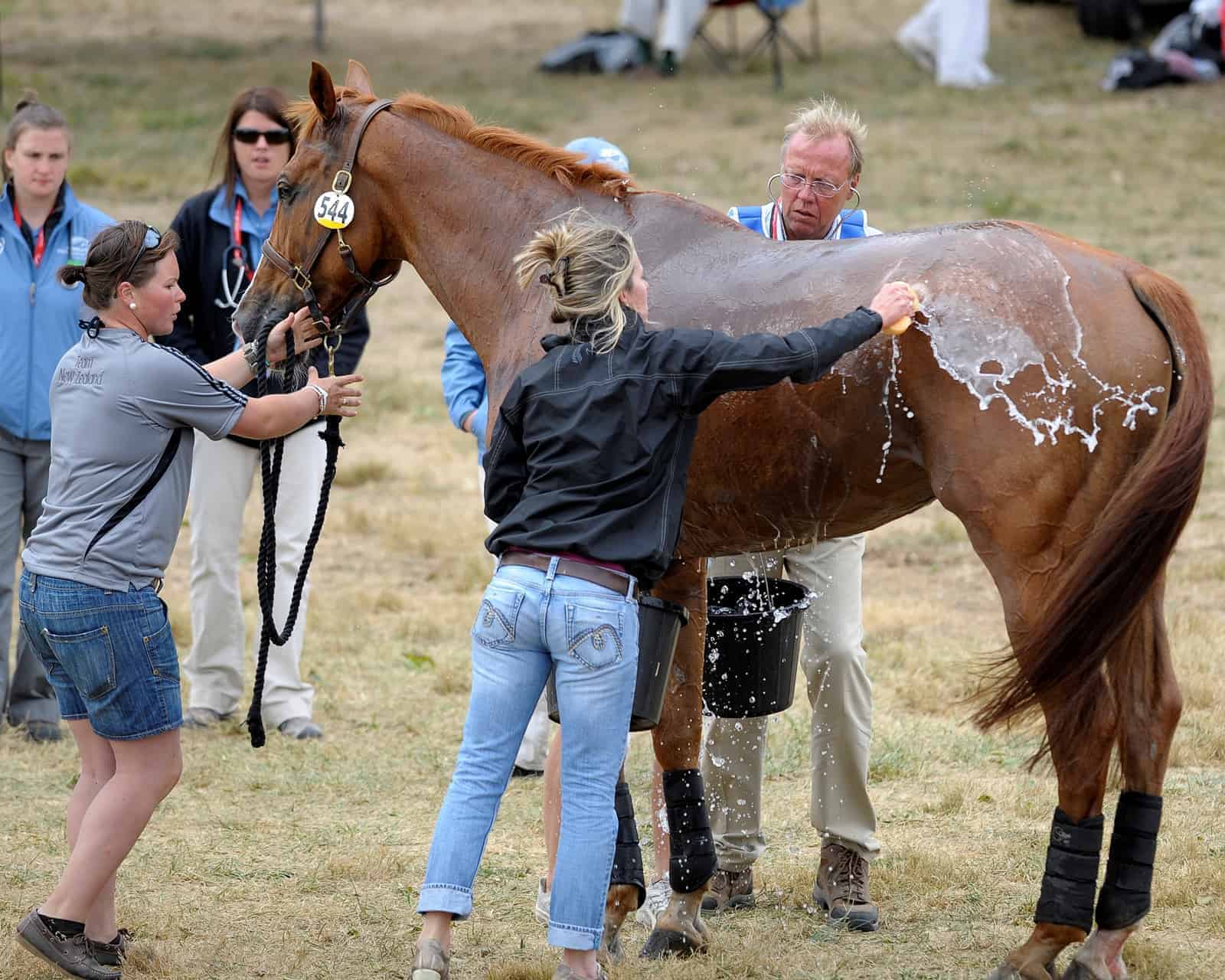Managing Dehydration, Exhaustion in Horses (AAEP 2012)

Why Sweat?
“Muscular activity is the best engine ever designed,” Adam began, in her overview of sweating’s purpose and effects. However, like any engine, it generates a great deal of heat that the body must eliminate; it does this by drawing it to the skin surface and dissipating it in sweat.
Horse sweat is isotonic and comprised largely of water, sodium, potassium, and chloride, making it similar to horses’ blood plasma composition, Adam continued. Human sweat, on the other hand, contains proportionally more water than horse sweat. When we perspire, our blood plasma becomes more concentrated, leaving us feeling thirsty–a sign we need to rehydrate, Adam explained. Because horses lose many more electrolytes and proportionally less water, they do not experience the same thirst response humans do, even if they become excessively dehydrated. Their desire to consume water to rehydrate is essentially eliminated, and they often refuse to drink.
“The loss of so much chloride leads to the retention of bicarbonate in the kidneys in an attempt to maintain electrical charge balance,” she explained. This imbalance, she explained, “leads to hypochloremic metabolic alkalosis–the hallmark derangement of strenuous, prolonged exercise as a consequence of sweat loss
Create a free account with TheHorse.com to view this content.
TheHorse.com is home to thousands of free articles about horse health care. In order to access some of our exclusive free content, you must be signed into TheHorse.com.
Start your free account today!
Already have an account?
and continue reading.

Written by:
Erica Larson
Related Articles
Stay on top of the most recent Horse Health news with











